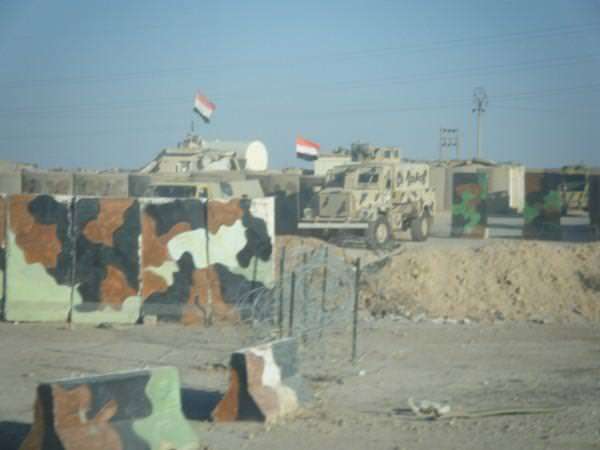No Ground Troops? Don't Bet on It. The Iraqi Army Is In No Shape to Fight ISIS.

When President Obama committed the United States to "degrade and ultimately destroy the terrorist group known as ISIL [ISIS]" in a speech on September 10, he promised a body bag-weary American public that the effort "will not involve American combat troops fighting on foreign soil." Well, maybe. Yesterday's air and missile strikes against ISIS in Syria certainly abided by that guarantee even as it widened efforts against the murderous group/budding shithole of a country. But the ongoing collapse of the Iraqi Army raises the question of just who will supply troops on the ground even as America rains death from the air.
Sunday, hundreds of Iraqi soldiers went missing—believed dead, grabbed, or bugged out—after their base, Camp Saqlawiyah, fell to a siege by ISIS forces.
This isn't the first fiasco suffered by the Iraqi Army in opposing ISIS. The militant group has acquired modern American weapons from fleeing Iraqi troops. Kirkuk Air Base fell when "Iraqi forces fled, stripping off their uniforms and discarding them in the dirt" before the enemy even approached the place.
Gen. Martin Dempsey, chairman of the Joint Chiefs of Staff, says about half the Iraqi Army isn't up to the job.
That may be why, before the bombs started falling in Syria, former Defense Secretary Robert Gates suggested on Sunday that "some small number of American advisers, trainers, special forces and forward spotters for air controllers are going to have to be in harm's way."
Former UK Prime Minister Tony Blair makes the same point, saying, "this is the hard truth—airpower alone will not suffice."
Some U.S. lawmakers are ready, and even eager, to follow up on that idea.
So far, President Obama is sticking by his promise that combat troops won't be committed against ISIS. But if local forces continue to flee the field when ISIS shows up, look for the president to "reluctantly" give in to the pressure to extend America's involvement in an Iraq War that just won't end.
Maybe the United States really needs to make a full-on commitment to defeating ISIS—it's a brutal group without doubt. But that's a discussion that should take place honestly, without coy assurances of a bloodless (for Americans) conflict. And it should be openly debated in Congress.


Show Comments (48)